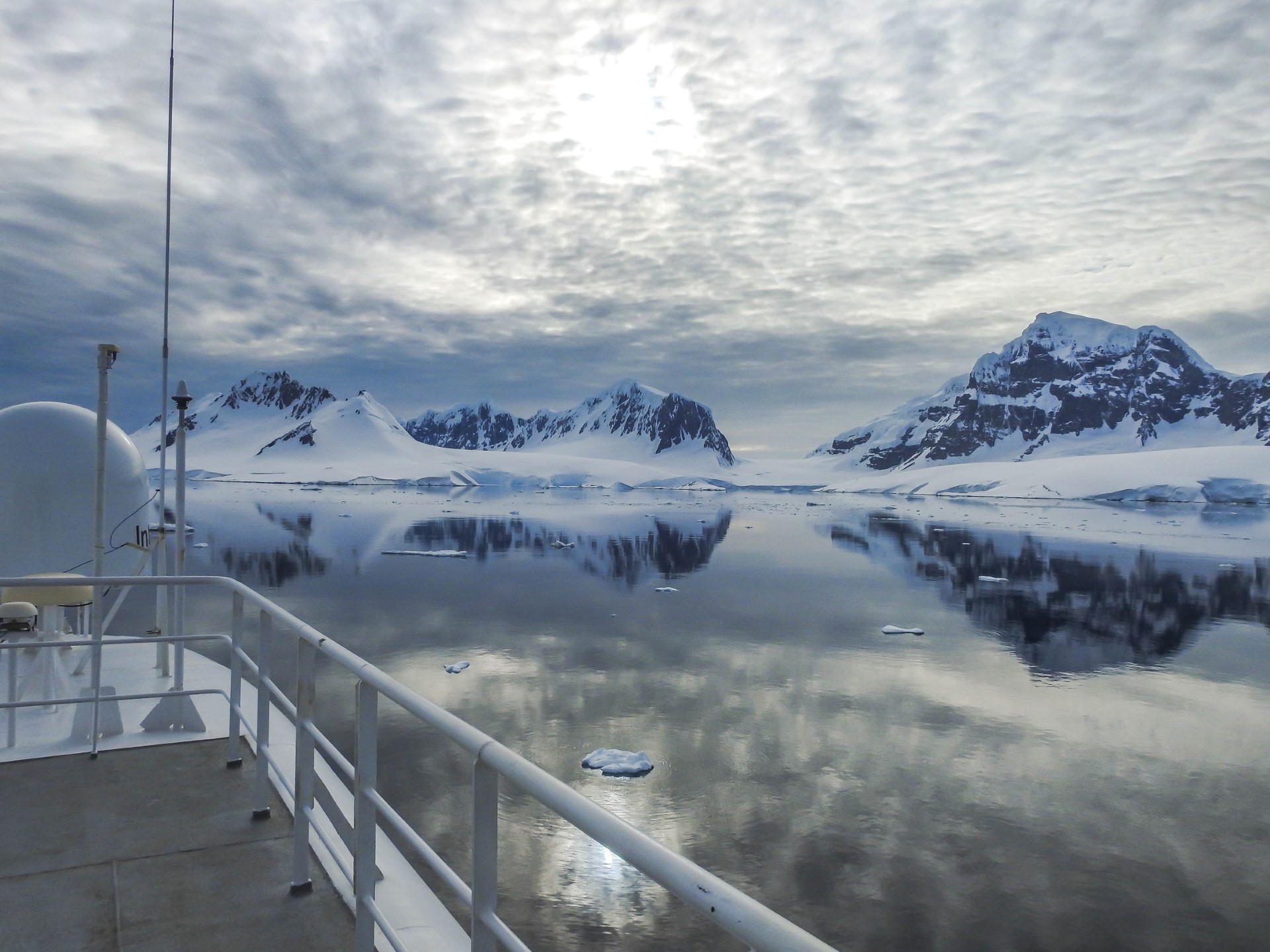Hunter Centre Enterprise Fellow reflects on Antarctic trip

Enterprise Fellow at the Hunter Centre for Entrepreneurship Wendy Pring was one of three Strathclyders who took part in a once in a lifetime trip to Antarctica in November to observe first hand the influence of human activities on the environment.
They were three of 100 women from across the globe with a passion for science and sustainability and a STEMM background who took part in the trip put together by the Homeward Bound group.
Homeward Bound was founded to create a global network of women with a background in STEMM (Science, Technology, Engineering, Mathematics and Medicine) with the ability to lead and able to solve our world’s greatest challenges. They were selected because of their passion and vision to recognise the importance of adding female leadership to the mix to enable positive change in our planetary management.
This is achieved through the delivery of a unique leadership development programme that seeks to change the current leadership model by equipping STEMM women from around the world with the skills to lead for the greater good, to be inclusive, collaborative, legacy-minded, and trusted with assets. The initiative was set up to focus on women as research finds women in STEMM tend not to stay in the field; that they don’t do so due to social or interpersonal factors and they are less visible in science research and STEMM awards. Homeward Bound wants to enhance participants’ leadership, strategic and visibility skills; and build a global and expanding network of deeply skilled women with a background in STEMM.
On the trip with Wendy were fellow Strathclyders Dr Maria Weikum and Dr Stephanie Ordonez Sanchez. Going south from Puerto Madryn, Argentina, they travelled on an expedition ship called ‘Island Sky’, first to the Falkland Islands and then on to the Antarctic peninsula and its surrounding island groups for three weeks.
The group took trips to shore to explore the local surroundings and took part in workshops and discussion sessions on-ship to examine broader global issues that they wanted to tackle as a group.
The trio say that as the Antarctic peninsula is one of the global regions most impacted by climate change, the voyage allowed them to experience some of these effects first-hand, from increasing numbers of icebergs and rain replacing snow at this early point in the summer season to unusual storms that even the experienced ship crew had not encountered before.
Wendy, an engineer with a background in wastewater management and a strong interest in the circular economy and circular business models, said, “The emotional connection to place was tangible; the solutions for various ecosystems not the same – this immersive approach to climate leadership unravels an understanding scientifically as well as the need to recognise partnerships for tailoring complex systems solutions.
"The importance of the speed of these transitions and the need for action was also clearly reflected upon by our experienced expedition crew leading in our climate knowledge, including researchers who supported the creation of Frozen Planet II and have been modelling Antarctica and how it will impact the global population.”
Bringing more than a hundred individuals from different countries, cultures, work sectors and disciplines for an extended period of time together into the confined space of a ship was a really interesting experience that turned out to be more harmonious than many of the group expected – aided by the explicit activities and behaviours that colleagues facilitating the programme helped the group to apply.
The three-week trip was deeply shaped by uncertainty as the group had to adapt travel plans daily due to the weather and conditions in Antarctica, while also learning to give up control and trust each other as they co-designed most of the on-ship workshops and sessions from day to day, building on emerging group priorities and the expertise of individuals.
Wendy added, “This was a particularly useful exercise as it resembled some of the issues we need to overcome when working on complex, global challenges – often there is no definite solution, circumstances and our understanding of the problem change and we cannot solve it alone but need to rely on each other and contribute to a solution together.”
Published: 30 January 2024






